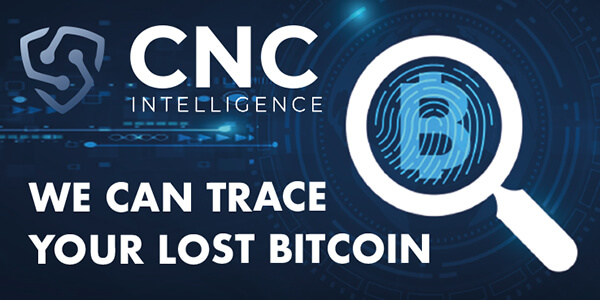With the rise of the internet and online connectivity, the risks and threats of cybercrime have also increased. Cybercrime is any illegal activity that is carried out using computers or the internet, and it can take many forms.
Examples of cybercrime include identity theft, phishing scams, malware and viruses, hacking, cyberstalking, and cyberbullying. While some crimes are committed for financial gain, others are motivated by revenge, hate, or a desire to cause disruption.
Cybercrime is a growing problem, and it is becoming increasingly difficult for law enforcement to keep up. In many cases, cybercriminals are based in other countries, making them difficult to track down and prosecute. Even when cybercriminals are caught and convicted, the sentences are often lenient, which does little to deter others from committing similar crimes.
There are several steps that you can take to protect yourself from becoming a victim of cyber attack. These include being careful about what information you share online, using strong passwords and security measures, and being aware of the latest scams and threats.
However, even if you take all of these precautions, you can still be at risk. The best defence against cyber attack is to stay informed and be vigilant.

What is Cybercrime?
Cybercrime is a term used to describe criminal activity that takes place online or using electronic devices. This can include anything from hacking and identity theft to fraud and online harassment.
Cybercrime is a growing problem as more and more people use the internet and electronic devices for their everyday activities. It is important to be aware of the risks of cybercrime and take steps to protect yourself, your family, and your business.
How does Cybercrime Operate?
Cybercrime is a type of crime that involves the use of computers and the internet to commit illegal acts. These crimes can include anything from identity theft and fraud to cyberstalking and cyberbullying.
In most cases, cybercriminals use malicious software, or malware, to gain access to their victim’s personal information or to disrupt their computer systems. They may also send spam or phishing emails in an attempt to trick their victims into revealing sensitive information.
Once they have access to this information, they can use it to commit identity theft or other crimes.
Types of Cybercrime
There are many forms of attacks that can be employed by the crooks. We have listed the details about the commonly used types below.
SQL Injections
A SQL injection is a type of cyberattack where the attacker inserts malicious code into a database in order to gain access to sensitive information. This can be done in a number of ways, but the most common is by exploiting vulnerabilities in web applications that allow the attacker to execute SQL queries. Once the attacker has access to the database, they can view, edit, or delete data as they please.
SQL injections are a serious problem because they can lead to the theft of sensitive information, such as credit card numbers or social security numbers. They can also be used to delete data from databases, which can cause serious problems for businesses or organizations that rely on that data.
There are a few things that you can do to protect yourself from SQL injection attacks. First, make sure that your web applications are up to date and patched. Second, use input validation to check user input for SQL code before passing it to the database. Finally, use database permissions to restrict access to sensitive data. By following these steps, you can help to keep your data safe from SQL injection attacks.
Phishing Attack
A phishing attack is a type of cybercrime that involves tricking someone into revealing sensitive information, such as passwords or credit card numbers. The attacker typically does this by sending an email or text message that looks legitimate, but is actually from a fake website or account.
Phishing attacks are becoming increasingly common, as they are relatively easy to carry out and can be very effective. They can have a significant financial impact on victims, as well as causing emotional distress.
If you receive an email or text message that looks suspicious, do not click on any links or attachments. Instead, contact the sender directly to verify that the message is legitimate. If you believe you have been the victim of a phishing attack, report it to the authorities immediately.
DDoS Attack
A DDoS attack is a type of cybercrime in which a malicious actor seeks to disrupt a computer network by flooding it with traffic from multiple sources. This can cause the network to become overloaded and unavailable to legitimate users.
DDoS attacks are often used to target websites or other online services, and can be very difficult to defend against. In some cases, attackers may even use botnets, or networks of infected computers, to amplify the amount of traffic they’re able to generate.
DDoS attacks can have a significant impact on businesses and individuals alike. They can result in lost productivity, decreased revenue, and reputational damage. In some cases, they may even cause physical damage to computer hardware. victims of DDoS attacks often have little recourse, as the attackers are often anonymous and can be very difficult to track down.
If you suspect that you’re under attack, it’s important to take immediate action to try to mitigate the damage. This may include disconnecting from the internet, contacting your ISP or web host, and implementing security measures such as rate limiting or firewalls. In some cases, it may also be necessary to contact law enforcement.
Malware
Malware, also known as malicious software, is any software used to harm or disrupt computer systems. malware can be used to steal personal information, damage data, or even take control of entire systems. Cybercriminals often use malware to target specific individuals or organizations in order to steal sensitive information or cause damage.
In some cases, malware can be used to gain access to entire networks of computers, known as botnets. Malware is a serious threat to both individual users and businesses, and can cause a great deal of financial and emotional damage.
Ransomeware
Ransomware is a type of cybercrime in which a malicious actor encrypts a victim’s data and demands a ransom payment in order to decrypt it. This type of attack can be devastating for businesses and individuals alike, as it can result in the loss of important data or even money.
In some cases, ransomware attackers have been known to delete victims’ data if the ransom is not paid, making it even more important to take steps to protect oneself from this type of attack. There are a few things that individuals and businesses can do to help protect themselves from ransomware, such as keeping backups of important data, using strong security software, and avoiding clicking on unknown links or attachments.
Software Piracy
Software piracy is a type of cybercrime in which software is copied and distributed without the permission of the copyright holder. This can include copying software onto unauthorized devices, sharing software without a license, or downloading pirated software from the internet.
Software piracy is a serious problem for the software industry, as it can lead to lost revenue and decreased innovation. In some cases, software pirates may also be involved in other types of cybercrime, such as identity theft or malware attacks.
How does Cybercrime affect Businesses?
Cybercrime can have a devastating effect on businesses. Not only can it lead to financial losses, but it can also damage a company’s reputation and cause customers to lose trust in the business. In some cases, businesses may even be forced to shut down due to the damage caused by cyber attacks.
There are a number of ways in which cybercrime can affect businesses. One of the most common is through data breaches, where sensitive information is stolen from a company’s servers.
This can lead to a loss of customer data, which can damage a company’s reputation and result in financial losses. Other common types of cybercrime include phishing attacks, where businesses are targeted with fraudulent emails, and denial of service attacks, where businesses are shut down by hackers.
Businesses need to be aware of the threat of cybercrime and take steps to protect themselves. This includes ensuring that their systems are secure and that their employees are trained in how to spot and avoid cyber threats.
Threat to National Defense
In recent years, cybercrime has become a major threat to national defence. Hackers have increasingly targeted government and military organizations, stealing sensitive information and causing disruptions. In some cases, they have even been able to gain control of critical systems, posing a serious threat to national security.
The rise of cybercrime has made it essential for government and military organizations to strengthen their cyber security defences. They must invest in the latest technologies and implement policies and procedures to protect their systems and data.
Additionally, they need to educate their employees on how to avoid becoming victims of cyber attacks. By taking these steps, they can help reduce the risk of cyberattacks and protect their organizations from the devastating consequences.
How to prevent Cybercrime?
There are many ways to prevent cybercrime, but the most effective way is to be proactive and take steps to protect yourself and your online information. Some simple tips to prevent cybercrime include:
- Keeping your software and anti-virus programs up to date
- Avoiding clicking on links or attachments in unsolicited emails
- Being cautious about what personal information you share online
- Using strong passwords and never sharing them with anyone
By following these basic tips, you can help protect yourself from becoming a victim of cybercrime. Additionally, it is important to report any suspicious activity or attempts to gain access to your personal information to the authorities. By working together, we can help make the internet a safer place for everyone.
Bottom Line
There is no single silver bullet that can protect against all cyber threats, but there are some basic steps that everyone can take to help reduce the risk of becoming a victim of cybercrime. One of the most important things you can do is to stay aware of the latest trends and techniques that criminals are using to target victims.
The best defence against cybercrime is a well-informed user. If you know what to look for, you can often spot attacks before they happen and take steps to protect yourself. Keep up with the latest security news and advisories, and make sure you have the latest patches and updates for your software and devices.
In addition to staying aware of the latest threats, you can also take some basic security measures to help protect yourself. Use strong, unique passwords for all of your online accounts, and never reuse passwords. Enable two-factor authentication whenever possible. And, back up your important data regularly to help ensure that you can recover it if it is lost or stolen.
By taking some simple precautions and staying informed, you can help protect yourself against the ever-evolving threat of cybercrime.
Take proper steps to combat Cybercrime. Being educated about the threats will give you a clear edge in the space.



